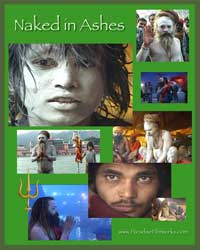Some of you requested I tell a little more about how I found my teacher, and I will return to that soon.
But right now, I wanted to discuss “Gnosticism” a bit. It’s one of those things that everyone’s talking about, but few people understand. Actually, it would probably be a good thing if we stopped talking about it, because Gnosticism is so broad a term that it’s practically meaningless. When we use a word like Protestantism, we’re talking about something that runs the gamut from Tennessee snake-handlers to French Huguenots, to most of the population of Papua New Guinea. What are we saying?
“Gnosticism” is even more vague. There were pagan, Jewish and Christian Gnostic movements in the ancient Mediterreanean and Middle East. If we think the term is analogous to “mysticism,” in that there are Christian, Hindu, Buddhist, and Muslim mysticisms (among others), we might be getting close, but my gut feeling is that some Gnosticisms were authentic mystical paths, but others had degenerated to mere religions.
While the Church Fathers inveighed against various teachers for widely different reasons, it’s important to remember that Gnosticism was never a single thing to them, even back then. On one hand, there was the school of Valentinius, who claimed St. Paul had taught Theudas “the wild things of God,” and that Theudas taught him. Valentinius’ works show a strong emphasis on theosis as many of the later Fathers would as well. In addition, Valentinius (like St. Paul), touched upon the “gnostic” idea of the “rulers of this age” (literally, the archons of this aeon), and emphasized that Christ frees us from them. But his emphasis seemed to be on the deep, transforming union with Christ, that leads us to become like him. But besides Valentinius, there were Marcion, Mani, Sethian Gnostics, Platonic schools of Gnosticism, pagan mystery religions, Mithraism, and more.
The Gospel of Thomas was tagged “Gnostic” because of its discovery in the Nag Hammadi library of mostly Gnostic writings, but nothing within it makes it so. But it lacks a Gnostic creation myth, has no exposition of “archons” or “aeons,” and shows no disdain for Creation. It simply records sayings of Jesus, many of which are familiar, and many of which are not. Most scholars have abandoned using the term “Gnostic” to describe Thomas.
The Gospel of Judas was published just two weeks ago, and seems to be a “Sethian” Gnostic work. It is mentioned by Ireneus, who wrote about it in 180 AD, hence it was composed some time before that, probably around the middle of the second century. Much of it it involves propounding a Gnostic creation myth, with elaborate geneaologies of spiritual beings, reminiscent of Paul’s injunction to avoid “myths and endless geneaologies” in (1Tim. 1:4, Tit.3:9). Paul warned that such stories were divisive and useless. It seems to me the product of a downward trend, from the simple belief that there are unfriendly spiritual forces at work in this world of appearances, to doctrinaire listings and the concretization of Gnostic mythology.
To me, the only interesting part of Judas is the last few verses, where Jesus essentially blesses Judas for doing his part, and says “you will free me from the man who imprisons me.”
Something rings true about that… not the actual scene or words so much as the the feeling behind them. Jesus’ teaching was not understood well by his disciples, let alone the masses. When he was resurrected and glorified, he had the ability to truly live within all who would call on his name. Being “freed of the man who imprisoned him” is a dramatic way to put it, but I wonder if it is dramatic enough for that unfathomable Love he had, longing to be with every soul, longing to be the Light that pierced our darkness. The Love that was “imprisoned” in one body, now can be in all.
I thank God, and also Adam, for the Fall so there could be Redemption.
I thank Jesus for offering himself up so there could be Resurrection.
I can’t thank Judas, but if Jesus did, that’s fine by me!
Adam and Judas were faithful to their parts. Nothing is amiss. Things are in divine order.
 I saw two good movies last weekend. One was Duma, a coming-of-age story about Xan, a white farm boy in South Africa during the apartheid era, who must let go of his nearly-full-grown pet cheetah, Duma. He runs away from home to try to return Duma to the area he came from, and ends up crossing hundreds of miles of the wild on foot, including part of the perilous Okavango Delta. In addition, he needs to teach a very tame cheetah who loves to play with other animals, how to hunt. Xan, who was home-schooled and sheltered, must also learn to trust Ripkoen, a mysterious black wanderer, in order to survive. As unlikely as it seems, it’s based on a true story.
I saw two good movies last weekend. One was Duma, a coming-of-age story about Xan, a white farm boy in South Africa during the apartheid era, who must let go of his nearly-full-grown pet cheetah, Duma. He runs away from home to try to return Duma to the area he came from, and ends up crossing hundreds of miles of the wild on foot, including part of the perilous Okavango Delta. In addition, he needs to teach a very tame cheetah who loves to play with other animals, how to hunt. Xan, who was home-schooled and sheltered, must also learn to trust Ripkoen, a mysterious black wanderer, in order to survive. As unlikely as it seems, it’s based on a true story.

